#Hubert Dreyfus
Text

🌊🐋✨🌈🦊🐦🔥🌱🌻🌌
#art#poetry#words#rhetoric#dark academia#web weaving#light academia#philosophy tumblr#love#language#all things shining#hubert dreyfus#sean dorrance kelly
4 notes
·
View notes
Text
Have we finally built a machine that can think? The history of philosophy throws up a potential roadblock on the much-trumpeted march of AI towards human-like intellect. Such challenges are nothing new; in 1972 Hubert Dreyfus published What Computers Can’t Do, a landmark book that drew on Wittgenstein and Heidegger to show that AI research at the time misunderstood what intelligence is. But another improbable protagonist – the 19th-century German philosopher GWF Hegel – goes beyond these attempts, despite having lived and died over 100 years earlier. Hegel developed an explosive account of the relationship between life and mind that overcomes the limitations of Dreyfus’s “critique of artificial reason” and furnishes a new yardstick against which any purported AI must be measured.
Large language models (LLMs) like ChatGPT differ from earlier forms of artificial intelligence – often referred to as “good old-fashioned AI” (GOFAI) – through their use of deep learning neural networks. These networks are “trained” to recognise patterns and make predictions using large sets of data. For example, LLMs are trained to write and converse by analysing the relevant data (Twitter feeds, Wikipedia entries, and so on) to create models that will generate sentences with the highest likelihood of correctness. Such deep learning techniques are a major advance from GOFAI, which is characterised by reliance on hard-coded rules for symbol manipulation and information processing. Because LLMs can “learn” to converse without such hard-coded rules, and to adapt to the data, they are thought to be better at navigating the complexities of an ever-changing world.
This sudden leap in AI capability has reinvigorated the debate about whether machines can emulate human intelligence, with many believing that deep learning neural networks will eventually match, if not surpass altogether, our kind of mind. Yet with few exceptions, there is not much discussion of what intelligence actually is.
11 notes
·
View notes
Text
Part of the problem was the kind of philosophy that Dreyfus used in his critique. Dreyfus was an expert in modern European philosophers (like Heidegger and Merleau-Ponty).[40] AI researchers of the 1960s, by contrast, based their understanding of the human mind on engineering principles and efficient problem solving techniques related to management science. On a fundamental level, they spoke a different language.
Wikipedia. Hubert Dreyfus's views on artificial intelligence
2 notes
·
View notes
Text

#Michel Foucault#philosophy#Mental Illness and Psychology#Revision#1962#Translation#1976#Hubert Dreyfus
1 note
·
View note
Text
Hot Vintage TV Ladies Bracket - Round 1
Round 1 (All polls)
Bea Arthur Vs. Bea Benaderet
Barbara Eden Vs. Kathryn Leigh Scott
Kellye Nakahara Vs. Janine Turner
Betty White Vs. Gracie Allen
Joely Richardson Vs. Miranda Richardson
Holland Taylor Vs. Joan Collins
Joan Chen Vs. Rachel Bilson
Lucille Ball Vs. Suzanne Pleshette
Angela Lansbury Vs. Eartha Kitt
Alex Kingston Vs. Julia Louis-Dreyfus
Gina Torres Vs. Sherilyn Fenn
Katee Sackhoff Vs. Geraldine James
Barbara Feldon Vs. Carol Cleveland
Amanda Tapping Vs. Nana Visitor
Amanda Randolph Vs. Barbara Mullen
Kate Jackson Vs. Kim Cattrall
Emma Thompson Vs. Penelope Keith
Rue McClanahan Vs. Barbara Stanwyck
Thalía Vs. Sheila Kuehl
Joan Bennett Vs. Grayson Hall
Julie Newmar Vs. Lalla Ward
Farrah Fawcett Vs. Catherine Bach
Diahann Carroll Vs. Siân Phillips
Mary Tyler Moore Vs. Jan Smithers
Nichelle Nichols Vs. Yvonne Craig
Carolyn Jones Vs. Lara Parker
Janet Hubert Vs. Marcia Strassman
Jackée Harry Vs. Dawn French
Tina Louise Vs. Linda Cristal
Eva Gabor Vs. Anne Francis
Lynda Carter Vs. Peggy Lipton
Courteney Cox Vs. Mädchen Amick
Vivica A Fox Vs. Julia Duffy
Valerie Harper Vs. Jaclyn Smith
Doris Day Vs. Dawn Wells
Debbie Allen Vs. Elizabeth Montgomery
Karyn Parsons Vs. Katy Manning
Deidre Hall Vs. Phyllis Logan
Jeri Ryan Vs. Mira Furlan
Lucy Lawless Vs. Claudia Black
Morena Baccarin Vs. Shannen Doherty
Jonelle Allen Vs. Francesca Annis
Jane Seymour Vs. Annette Crosbie
Diana Rigg Vs. Joanna Lumley
Melissa Joan Hart Vs. Lisa Robin Kelly
Lisa Bonet / Lilakoi Moon Vs. Lisa Hartman
Eliza Dushku Vs. Chloe Annett
Fran Drescher Vs. Mariska Hargitay
Lauren Graham Vs. Charisma Carpenter
Marlo Thomas Vs. Lily Tomlin
Connie Booth Vs. Barbara Billingsley
Gillian Anderson Vs. Alexandra Paul
Penny Johnson Jerald Vs. Mag Ruffman
Sarah Jessica Parker Vs. Judy Parfitt
Cicely Tyson Vs. Aimi MacDonald
Anna May Wong Vs. Peggy Ashcroft
Carol Burnett Vs. Elisabeth Sladen
Sarah Michelle Gellar Vs. Hattie Hayridge
Pamela Anderson Vs. Loretta Swit
Itatí Cantoral Vs. Audrey Meadows
Jane Krakowski Vs. Jennifer Aniston
Terry Farrell Vs. Nicole de Boer
Carole André Vs. Melissa Leo Vs. Sabrina Lloyd
Eve Arden Vs. Dorothy Provine Vs. Vivian Vance
21 notes
·
View notes
Text
Cool people with whom I share a birthday
Oscar Wilde
Friedrich Nietzsche
Italo Calvino
Michel Foucault
Hubert Dreyfus
Elisabeth Therese of Lorraine
Princess Marie Of Prussia
Aleksey Koslovsky
Richard Carpenter
Lynn Lowry
Tanya Roberts
3 notes
·
View notes
Text
it's amazing that so many lesswrongers see "sparks" of "AGI" in large language models because
the bulk of them are neo-hayekians, and their widespread belief in prediction markets attests to this
it's now very well documented that "knowledge" which models haven't been trained on ends up being confabulated when models are queried for it, and what you receive is nonsense that resembles human generated text. even with extensive training, without guardrails like inserting a definite source of truth and instructing the model not to contradict the knowledge therein (the much vaunted "RAG" method, which generates jobs for knowledge maintainers and which is not 100% effective - there is likely no model which has a reading comprehension rate of 100%, no matter how much you scale it or how much text you throw at it, so the possibility of getting the stored, human-curated, details wrong is always there), you're likely to keep generating that kind of nonsense
of course, hayek's whole thing is the knowledge problem. the idea that only a subset of knowledge can be readily retrieved and transmitted for the purpose of planning by "a single mind".
hayek's argument is very similar to the argument against general artificial intelligence produced by hubert dreyfus, and I don't think I'm even the first person to notice this. dan lavoie, probably one of the brightest austrian schoolers, used to recommend dreyfus's book to his students. both hayek and dreyfus argue that all knowledge can't simply be objectivized, that there's context-situated knowledge and even ineffable, unspeakable, knowledge which are the very kinds of knowledge that humans have to make use of daily to survive in the world (or the market).
hayek was talking in a relatively circumscribed context, economics, and was using this argument against the idea of a perfect planned economy. i am an advocate of economic planning, but i don't believe any economy could ever be perfect as such. hayek, if anything, might have even been too positive about the representability of scientific knowledge. on that issue, his interlocutor, otto neurath, has interesting insights regarding incommensurability (and on this issue too my old feyerabend hobbyhorse also becomes helpful, because "scientific truths" are not even guaranteed to be commensurable with one another).
it could be countered here that this is assuming models like GPT-4 are building symbolic "internal models" of knowledge which is a false premise, since these are connectionist models par excellence, and connectionism has some similiarity to austrian-style thinking. in that case, maybe an austrianist could believe that "general AI" could emerge from throwing enough data at a neural net. complexity science gives reasons for this to be disbelieved too however. these systems cannot learn patterns from non-ergodic systems (these simply cannot be predicted mathematically, and attempts to imbue models with strong predictive accuracy for them would likely make learning so computationally expensive that time becomes a real constraint), and the bulk of life, including evolution (and the free market), is non-ergodic. this is one reason why fully autonomous driving predictions have consistently failed, despite improvements: we're taking an ergodic model with no underlying formal understanding of the task and asking it to operate in a non-ergodic environment with a 100% success rate or close enough to it. it's an impossible thing to achieve - we human beings are non-ergodic complex systems and we can't even do it (think about this in relation to stafford beer's idea of the law of requisite variety). autonomous cars are not yet operating fully autonomously in any market, even the ones in which they have been training for years.
hayek did not seem to believe that markets generated optimal outcomes 100% of the time either, but that they were simply the best we can do. markets being out of whack is indeed hayek's central premise relating to entrepreneurship, that there are always imperfections which entrepreneurs are at least incentivized to find and iron out (and, in tow, likely create new imperfections; it's a complex system, after all). i would think hayek would probably see a similar structural matter being a fundamental limitation of "AI".
but the idea of "fundamental limitations" is one which not only the lesswrongers are not fond of, but our whole civilization. the idea that we might reach the limits of progress is frightening and indeed dismal for people who are staking bets as radical as eternal life on machine intelligence. "narrow AI" has its uses though. it will probably improve our lives in a lot of ways we can't foresee, until it hits its limits. understanding the limits, though, are vital for avoiding potentially catastrophic misuses of it. anthropomorphization of these systems - encouraged by the fact that they return contextually-relevant even if confabulated text responses to user queries - doesn't help us there.
we do have "general intelligences" in the world already. they include mammals, birds, cephalopods, and even insects. so far, even we humans are not masters of our world, and every new discovery seems to demonstrate a new limit to our mastery. the assumption that a "superintelligence" would fare better seems to hinge on a bad understanding of intelligence and what the limits of it are.
as a final note, it would be funny if there was a breakthrough which created an "AGI", but that "AGI" depended so much on real world embodiment that it was for all purposes all too human. such an "AGI" would only benefit from access to high-power computing machinery to the extent humans do. and if such a machine could have desires or a will of its own, who's to say it might not be so disturbed by life, or by boredom, that it opts for suicide? we tell ourselves that we're the smartest creatures on earth, but we're also one of the few species that willingly commit suicide. here's some speculation for you: what if that scales with intelligence?
15 notes
·
View notes
Text
Alfred Dreyfus
A French artillery officer of Jewish ancestry from Alsace

Alfred Dreyfus was a French artillery officer of Jewish ancestry from Alsace whose trial and conviction in 1894 on charges of treason became one of the most polarizing political dramas in modern French history. The incident has gone down in history as the Dreyfus affair, the reverberations from which were felt throughout Europe. It ultimately ended with Dreyfus' complete exoneration.
Born: October 9, 1859, Mulhouse
Died: July 12, 1935, Paris
Children: Pierre Dreyfus, Jeanne Dreyfus
Spouse: Lucie Dreyfus (m. 1891–1935)
Place of burial: Montparnasse Cemetery, Paris
Parents: Raphael Dreyfus, Jeannette Dreyfus
Dreyfus affair
Dreyfus affair, political crisis, beginning in 1894 and continuing through 1906, in France during the Third Republic. The controversy centred on the question of the guilt or innocence of army captain Alfred Dreyfus, who had been convicted of treason for allegedly selling military secrets to the Germans in December 1894. At first the public supported the conviction; it was willing to believe in the guilt of Dreyfus, who was Jewish. Much of the early publicity surrounding the case came from anti-Semitic groups (especially the newspaper La Libre Parole, edited by Édouard Drumont), to whom Dreyfus symbolized the supposed disloyalty of French Jews.
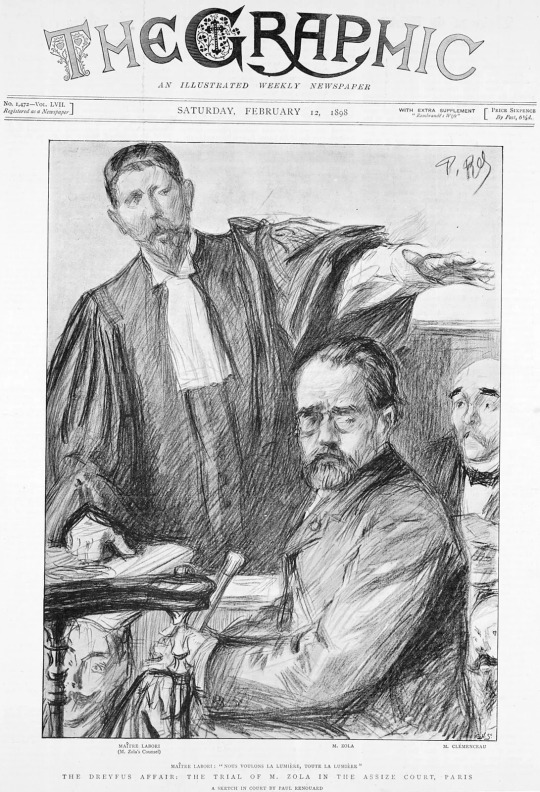
Zola, Émile: Newspaper depiction of Émile Zola in court during his trial for defamation of the French military, 1898.
The effort to reverse the sentence was at first limited to members of the Dreyfus family, but, as evidence pointing to the guilt of another French officer, Ferdinand Walsin-Esterhazy, came to light from 1896, the pro-Dreyfus side slowly gained adherents (among them journalists Joseph Reinach and Georges Clemenceau—the future World War I premier—and a senator, Auguste Scheurer-Kestner). The accusations against Esterhazy resulted in a court-martial that acquitted him of treason (January 1898). To protest against the verdict, the novelist Émile Zola wrote a letter titled “J’accuse,” published in Clemenceau’s newspaper L’Aurore. In it he attacked the army for covering up its mistaken conviction of Dreyfus, an action for which Zola was found guilty of libel.
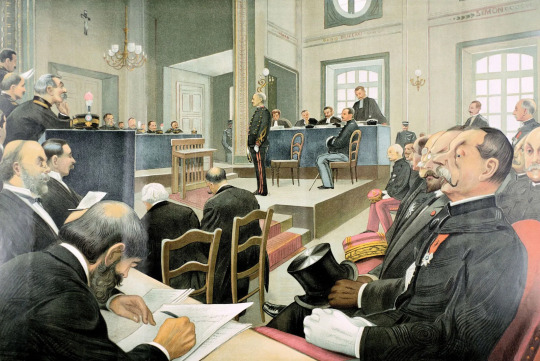
The second court-martial of Alfred Dreyfus, illustration from Vanity Fair, Nov. 23, 1899.
By the time of the Zola letter, the Dreyfus case had attracted widespread public attention and had split France into two opposing camps. The anti-Dreyfusards (those against reopening the case) viewed the controversy as an attempt by the nation’s enemies to discredit the army and weaken France. The Dreyfusards (those seeking exoneration of Captain Dreyfus) saw the issue as the principle of the freedom of the individual subordinated to that of national security. They wanted to republicanize the army and put it under parliamentary control.
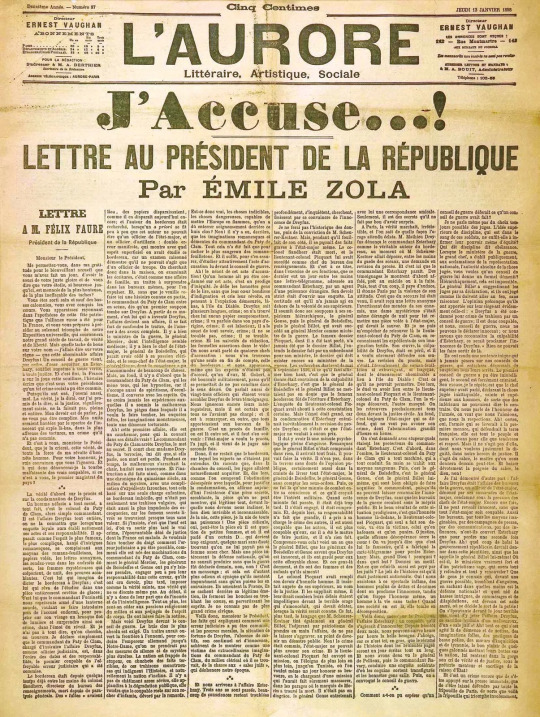
Front page of the newspaper L'Aurore, January 13, 1898, with the open letter “J'accuse” written by Émile Zola about the Dreyfus affair....(more) -From L'Aurore, January 13, 1898
From 1898 to 1899 the Dreyfusard cause gained in strength. In August 1898 an important document implicating Dreyfus was found to be a forgery. After Maj. Hubert-Joseph Henry of the intelligence section confessed to fabricating the document in order to strengthen the army’s position, revision was made almost certain. At the same time, the affair was becoming a question of vital concern to politicians. The republican parties in the Chamber of Deputies recognized that the increasingly vocal nationalist right posed a threat to the parliamentary regime. Led by the Radicals, a left-wing coalition was formed. In response to continuing disorders and demonstrations, a cabinet headed by the Radical René Waldeck-Rousseau was set up in June 1899 with the express purpose of defending the republic and with the hope of settling the judicial side of the Dreyfus case as soon as possible. When a new court-martial, held at Rennes, found Dreyfus guilty in September 1899, the president of the republic, in order to resolve the issue, pardoned him. In July 1906 a civilian court of appeals (the Cour d’Appel) set aside the judgment of the Rennes court and rehabilitated Dreyfus. The army, however, did not publicly declare his innocence until 1995.
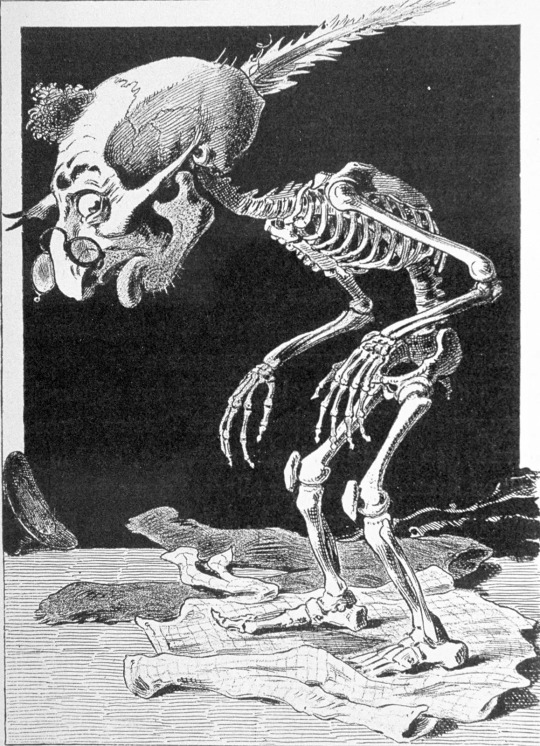
Anti-Semitic caricature: Caricature from the anti-Semitic Viennese magazine Kikeriki. Its caption reads: “In the Dreyfus Affair, the more that is exposed, the more Judah is embarrassed.”...(more) © United States Holocaust Memorial Museum
With the Dreyfusards in the ascendant, the affair marked the start of a new phase in the history of the Third Republic, a phase in which a series of Radical-led governments pursued an anticlerical policy that culminated in the formal separation of church and state (1905). By intensifying antagonisms between right and left and by forcing individuals to choose sides, the case made a lasting impact on the consciousness of the French nation.
Félix Faure | French Republic, Politics, Legacy | Britannica
In 1894, this made the French Army's counter-intelligence section, led by Lieutenant Colonel Jean Sandherr, aware that information regarding new artillery parts was being passed to Maximilian von Schwartzkoppen, the German military attache in Paris, by a highly placed spy most likely on the General Staff. Suspicion quickly fell upon Dreyfus, who was arrested for treason on 15 October 1894.
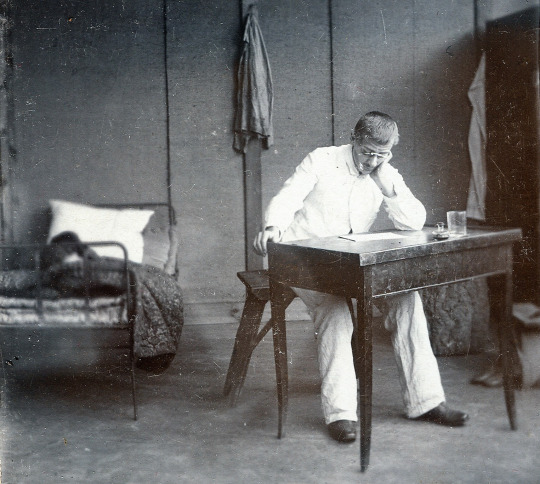
Alfred Dreyfus in his room on Devil's Island in 1898, stereoscopy sold by F. Hamel, Altona-Hamburg…; collection Fritz Lachmund
On 5 January 1895, Dreyfus was summarily convicted in a secret court martial, publicly stripped of his army rank, and sentenced to life imprisonment on Devil's Island in French Guiana. Following French military custom of the time, Dreyfus was formally degraded (cashiered) by having the rank insignia, buttons and braid cut from his uniform and his sword broken, all in the courtyard of the École Militaire before silent ranks of soldiers, while a large crowd of onlookers shouted abuse from behind railings. Dreyfus cried out: "I swear that I am innocent. I remain worthy of serving in the Army. Long live France! Long live the Army!...Continue
The affair ultimately ended with Dreyfus' complete exoneration.
Dreyfus died in Paris aged 75, on 12 July 1935, exactly 29 years after his exoneration.
Alfred Dreyfus - Wikipedia
8 notes
·
View notes
Text

Hubert Dreyfus, Stuart E. Dreyfus Mind Over Machine Free Press ( 2000) : Libertar.io : Free Download, Borrow, and Streaming : Internet Archive
8 notes
·
View notes
Text
It really is wonderful how Robert Sokolowski opens his A.I. paper with what is essentially a linguistic phenomenology (the other examples that follow are helpful too, but I didn't include those in the excerpt).
If I were to look into Hubert Dreyfus's "What Computers Can't Do", it would mostly because I'm curious about his presentation of phenomenology, I know he didn't exactly leave the best impression with A.I. researchers. And I still see things like photos of robots handling his book as a flex sometimes.

3 notes
·
View notes
Note
What do you like about The Brothers Karamazov? It's been more than a decade since I read it but I remember it being very Christian
So the first thing is that I first read that book at age 19 and developed an enormous kin!crush on Alyosha Karamazov that I've never quite gotten over. If you're going to judge me for that I don't really care, I'm in the good company of many readers but notably none other than Ludwig Wittgenstein on that.
And the second thing is that it's... not actually as Christian as it might appear on the surface? Many of the themes and motifs are replicated in (some) Christian moralism but the theology itself is somewhat lacking in mainline Christian content. The more traditional motif of (tw oversimplifying) being good through the inspiration of Christ that permeates most Catholic and Orthodox teaching is almost entirely absent, with the exception of a single monk who is a parody of an ascetic and serves as a foil to Zosima, while goodness in characters like Alyosha, Dmitri, and Grushenka comes from within, starting with the self, which is a much more (albeit, Christian) existentialist perspective. Someone like Hegel is actually much more Christian in ways than Dostoevsky despite the whole "death of God" theology due to the much more active role that the figure of Christ takes in his philosophy of religion, you can (somewhat but not entirely irresponsibly) snap a line of historical development of Christian to atheist existentialism from Hegel -> later Schelling -> Kierkegaard -> Dostoevsky -> Nietzsche. So that's a very roundabout way of saying I enjoy the work of a Christian existentialist like Dostoevsky because he's an existentialist rather than because he's a Christian.
Uhh, I'm abbreviating a lot here because I don't want to write a long original essay and it's been a few years since I re-read TBK (but it's my favorite book of all time so I probably will read it again soon). If you want to learn more I'd recommend the online lectures from Hubert Dreyfus on Existentialism in Film and Literature, which I listened to probably seven years ago during a re-read of it and I think really enhanced my understanding of it. You probably will want to slog through Kierkegaard first (whose work Fear and Trembling is undeniably more Christian-themed since it's basically a commentary on the Akedah) to understand the parts on Dostoevsky, though, K's concepts of the knight of faith and teleological suspension of the ethical are important to grasp in order to understand Dreyfus's reading of Dostoevsky.
#karamazovposting#hegelposting#apologies if i've gone “quartz and feldspars” here nonny i have no idea what your background is in philosophy
5 notes
·
View notes
Text

🐋🌊✨🌈♻️🌱🌬️🦠🪀⛳️🧲🎄⚡️🗣️🌋🔥🐦🔥🎶💨🍃🍄💭💬🎈✂️🧮🎡🧣🚥🔺🔻🧯🏓🥌🦞🎻🪗🎼💹🪴🪲🌿☘️🌲🗽📕🦐🎇🪩❤️🔥
#art#poetry#words#dark academia#rhetoric#light academia#web weaving#philosophy tumblr#language#love#hubert dreyfus#sean dorrance kelly#moby dick#herman melville#captain ahab#free palestine#homer
4 notes
·
View notes
Text
Not to go full Hubert Dreyfus, but the reason AI art sucks is because those who promote it have an entirely mechanical understanding of artistic expression. They mistake spectacle and superficial prettiness for meaning and moral complexity - qualities which, rooted as they are in the undergrowth of history and the psychic processes of human life, can only be echoed heartlessly by algorithms and machines.
32 notes
·
View notes
Text
Title: Towards a Conceptualization of Human-Computer Intelligence
Author: Hubert Dreyfus
Rating: 1/5 stars
How about don't write an entire book about how to build a stupid CAPTCHA
fun
10 notes
·
View notes
Text
One early critic of human-level AI was Hubert Dreyfus. During the first wave of AI, Dreyfus argued that symbolically mediated cognitive processes require a context of tacit, informal background knowledge, in the sense indicated by Polanyi (1958), to render them meaningful (Dreyfus, 1965). A large portion of human knowledge, for example, domain-specific expertise, is tacit and informal and so cannot be represented symbolically. Thus, computation alone can- not account for knowledge with a tacit component (Dreyfus, 1976, 1992).
Stephen Roddy. 2023. “Creative Human-Machine Collaboration: Toward a Cybernetic Approach to Artificial Intelligence and Machine Learning Techniques in the Creative Arts.” In AI and the Future of Creative Work, edited by Michael Filimowicz. London, Routledge.
2 notes
·
View notes
Text
Hot Vintage TV Women's Bracket - List of the Ladies!
As promised below is a full list of all 130 women in the Hot Vintage TV Women's Tournament! Thank you to everyone who submitted their favs!
Just a brief bit of cleanup before the list. Thank you for all the submissions. If your submission didn't make it into the bracket or some of your propaganda isn't used know that I still appreciated the submission even if we weren't able to use it. Some things got cut for being outside the bounds of the tournament, some things got cut because the links were broken, etc. Anything I wasn't sure about got brought to family and friends for a second opinion. I did my best to keep as much in as possible but some things just ended up leaning too far outside of our criteria. If you notice some stuff that seems outside the criteria slip by it's because I tried to be very generous so as long as something wasn't obviously outside of our time period or rules I usually gave it a pass.
Anyway, I am working on the bracket as we speak and apologize in advance cause I don't think there's any way to make round 1 completely painless, as you'll see we have a pretty stacked line-up so I'm excited to see how things work out! Enjoy and see you all on Monday April 15th for round one of the Hot Vintage TV Women's Bracket!
Eartha Kitt
Dawn French
Julia Louis-Dreyfus
Nichelle Nichols
Loretta Swit
Joan Bennett
Mary Tyler Moore
Yvonne Craig
Barbara Stanwyck
Lara Parker
Bea Arthur
Barbara Feldon
Rue McClanahan
Lynda Carter
Kellye Nakahara
Jan Smithers
Elisabeth Sladen
Diana Rigg
Janet Hubert
Carol Burnett
Jackée Harry
Betty White
Gillian Anderson
Anne Francis
Peggy Lipton
Eliza Dushku
Joan Chen
Terry Farrell
Gina Torres
Catherine Bach
Tina Louise
Carolyn Jones
Dawn Wells
Vivica A Fox
Mariska Hargitay
Deidre Hall
Aimi MacDonald
Carol Cleveland
Valerie Harper
Lisa Hartman
Julie Newmar
Fran Drescher
Melissa Joan Hart
Mira Furlan
Nana Visitor
Claudia Black
Courteney Cox
Sarah Jessica Parker
Jane Krakowski
Sarah Michelle Gellar
Sherilyn Fenn
Eve Arden
Elizabeth Montgomery
Marlo Thomas
Lucy Lawless
Joanna Lumley
Barbara Eden
Kathryn Leigh Scott
Grayson Hall
Eva Gabor
Siân Phillips
Shannen Doherty
Lisa Robin Kelly
Debbie Allen
Lisa Bonet / Lilakoi Moon
Rachel Bilson
Karyn Parsons
Jane Seymour
Jonelle Allen
Julia Duffy
Lalla Ward
Miranda Richardson
Mag Ruffman
Penelope Keith
Carole André
Amanda Tapping
Lucille Ball
Nicole de Boer
Jeri Ryan
Penny Johnson Jerald
Katy Manning
Charisma Carpenter
Morena Baccarin
Katee Sackhoff
Janine Turner
Marcia Strassman
Farrah Fawcett
Kate Jackson
Jaclyn Smith
Lily Tomlin
Melissa Leo
Sabrina Lloyd
Joan Collins
Diahann Carroll
Jennifer Aniston
Pamela Anderson
Alexandra Paul
Chloe Annett
Hattie Hayridge
Thalía
Itatí Cantoral
Connie Booth
Linda Cristal
Doris Day
Angela Lansbury
Dorothy Provine
Vivian Vance
Suzanne Pleshette
Bea Benaderet
Gracie Allen
Amanda Randolph
Anna May Wong
Sheila Kuehl
Barbara Billingsley
Barbara Mullen
Phyllis Logan
Annette Crosbie
Geraldine James
Audrey Meadows
Peggy Ashcroft
Holland Taylor
Emma Thompson
Judy Parfitt
Francesca Annis
Mädchen Amick
Joely Richardson
Alex Kingston
Cicely Tyson
Lauren Graham
Kim Cattrall
19 notes
·
View notes